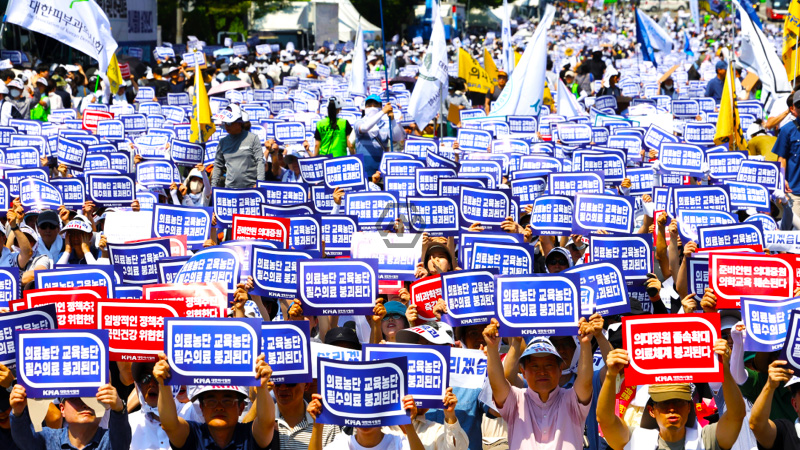- Thousands of trainee doctors in South Korea have been on strike since February, demanding increases in medical school admission quotas and addressing key issues in healthcare.
- The strike has led to significant disruptions in hospital operations, delaying surgeries and turning away patients.
- Government warnings have not deterred the ongoing strike, highlighting the urgency for constructive dialogue to resolve the crisis.
Amidst South Korea’s escalating doctors’ strike, concerns are mounting over the long-term stability of the country’s healthcare system. The strike, which began with mass resignations by trainee doctors earlier this year, has resulted in widespread operational challenges for hospitals.
As the strike persists, there is a growing sense of urgency for the government to engage more effectively with the striking doctors. Calls for increased medical school admissions and other reforms have underscored deep-seated issues within the healthcare sector that need immediate attention.
South Korea’s Healthcare System at Crossroads Amid Prolonged Doctors’ Strike
The ongoing doctors’ strike in South Korea continues to grip the nation, highlighting critical challenges in the healthcare sector. Since February, thousands of trainee doctors have remained on strike, leading to severe disruptions in hospital operations. This includes delays in crucial surgeries and limitations on outpatient services, exacerbating concerns about patient care and the overall functionality of the healthcare system.
Efforts to mitigate the strike’s impact have so far fallen short, with the government’s warnings and attempts to negotiate proving inadequate to resolve the impasse. The strike, supported by a significant number of medical students, reflects deep-rooted grievances regarding medical education policies and broader systemic issues within South Korea’s healthcare infrastructure.
The doctors’ strike in South Korea underscores the critical need for effective dialogue and swift action to safeguard the country’s healthcare system. As stakeholders continue to navigate the complexities of the ongoing strike, prioritizing patient care remains paramount in charting a path forward.
“South Korea’s healthcare crisis demands urgent, collaborative solutions to ensure both the welfare of patients and the sustainability of our medical profession.”



